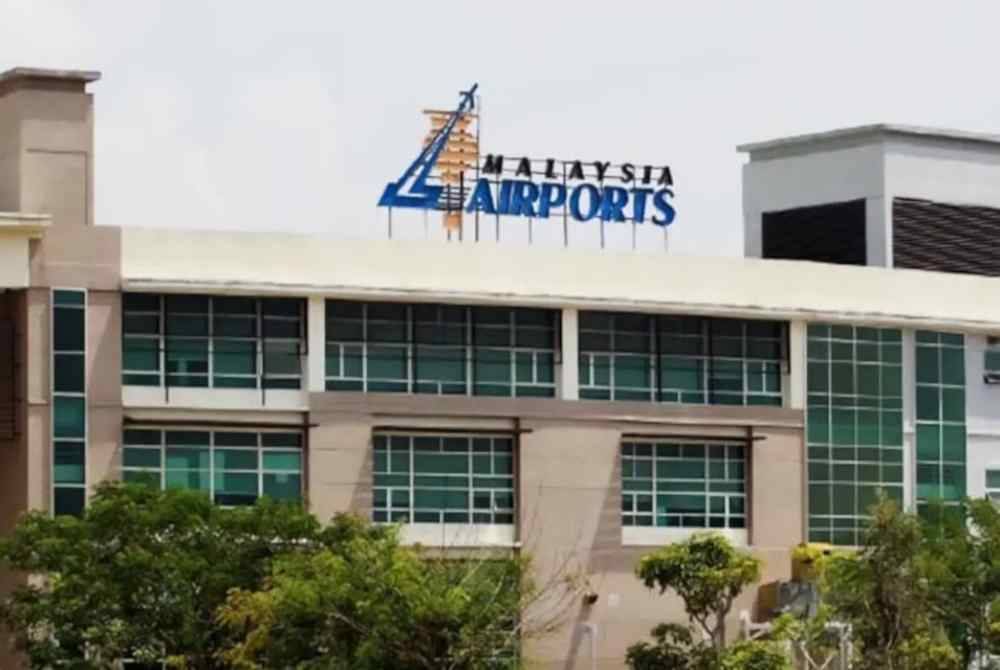Transparency at risk: 4PAM questions potential asset stripping of MAHB
Malaysian public transport expert also questioned the rationale behind the delisting, citing statements from a minister who claimed that delisting would allow MAHB to make swift decisions.

SHAH ALAM - The Malaysian Public Transport Users Association (4PAM) called on the government to thoroughly scrutinise the proposed restructuring and delisting of Malaysia Airports Holdings Berhad (MAHB), raising concerns about transparency and the risk of asset stripping.
4PAM President Ajit Johl expressed these concerns, urging Prime Minister Datuk Seri Anwar Ibrahim and relevant authorities to investigate the deal involving government-linked companies (GLCs), including MAHB, as its potential implications could greatly affect the public.
Ajit stressed that GLCs were entrusted with public funds and often operated with near-monopoly privileges, intended to enhance the efficiency of government services and generate returns for the benefit of the people.
"The recent announcement for restructuring MAHB demands higher scrutiny and transparency.
"4PAM, like many Members of Parliament, are concerned and questioning Khazanah’s direction to restructure and delist MAHB.
“Recent news of Blackrock acquiring 100 per cent of Global Infrastructure Partners (GIP) further necessitates closer inspection of the MAHB deal,” he said in a statement today.
Ajit also questioned the rationale behind the delisting, citing statements from a minister who claimed that delisting would allow MAHB to make swift decisions.
"The rationale given by the Minister, ‘that once delisted, MAHB can make decisions swiftly,’ itself sent shivers down the spine.
"MAHB, as a listed entity, must abide by a highly regulated regime to ensure transparency and accountability at the highest level to protect the interests of its shareholders.
“By delisting MAHB, this scrutiny would be reduced; hence, the exercise sounded more like asset stripping rather than strengthening it," Ajit said.
Ajit highlighted the contradiction in the government’s actions, pointing out that despite any perceived management shortcomings, the government extended the Airport Operating Agreement for another 35 years.
He further questioned why this was done if MAHB's management was underperforming.
At that time, MAHB managed 40 airports and handled over 140 million passengers annually, making it one of the top five global airport operators.
Ajit stated that the company, with RM1.8 billion in cash reserves and nearly RM1 billion in annual returns to investors, used profits from major terminals to subsidise the operation of smaller, less profitable airports nationwide.
He also expressed concerns about GIP’s involvement, emphasising that the company’s primary focus was on returns on investment.
"An investor’s interest lies in 'returns on investment,' and will these new shareholders provide the undertaking to the government that it will not asset strip MAHB?
"Why is the government allowing a foreign partner to have access to our airport building funds (CAPEX and OPEX)?" he questioned.
Under the proposed restructuring, Malaysian entities, including Khazanah and the Employees Provident Fund (EPF), would collectively own 70 per cent of MAHB, with GIP holding a 30 per cent stake.
Ajit pointed out that Khazanah’s stake would increase from 33.2 per cent to 40 per cent, while EPF’s would grow from 7 per cent to 30 per cent.
He also highlighted Khazanah’s troubled track record, citing its RM28 billion investment in Malaysia Airlines (MAS), which continued to face significant challenges.
Ajit also cited other failed investments, including Iskandar Pinewood Studios, where a RM748 million investment was sold for RM32 million, and KidZania Singapore, where an investment of RM165.2 million was sold for just RM379,000.
"This speaks volumes of capability at Khazanah," he said.
In response to these concerns, 4PAM submitted feedback to the Malaysian Aviation Commission (Mavcom), which was currently reviewing the proposed restructuring.
"We believe that Mavcom, as an independent commission entrusted by the government and the Malaysian people, will ensure the economic success and well-being of the nation’s aviation industry and will make the report public.
"The government needs to give a clear answer to the people and we need to know what is going on," he said, urging Khazanah, EPF, Finance Ministry and the Prime Minister to clarify the situation











